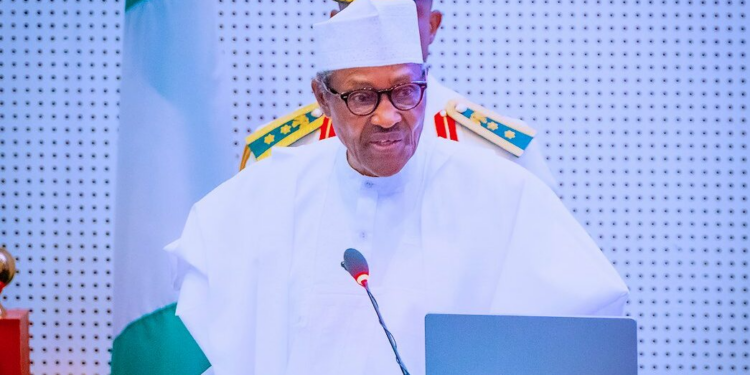13 April 2023.
Engr. Eferebo I. Sylvanus.
No 11 RSU Road, Off Ikwere Road.
Port Harcourt,
Rivers State.
Nigeria.
His Excellency Muhammadu Buhari (GCFR)
President of the Federal Republic of Nigeria,
Office of the President,
Aso Rock Presidential Villa,
Abuja, FCT, Nigeria.
Dear Mr. President,
Federal Government Approval to Use $350 Million Cabotage Funds to Finance Vessel Purchases by Ship Owners in Nigeria.
My Concern.
I am writing to express my concerns about the recent move by the Federal Government to use $350 million of Cabotage funds to finance the purchase of vessels by ship owners in Nigeria. While the intention behind the approval may be to support the development of the Nigerian shipping industry, it is essential to consider the potential drawbacks of such a move.
The Cabotage Act of the Federal Republic of Nigeria was enacted to promote and protect the Nigerian maritime transportation and domestic shipping industry. The Act seeks to reserve the transportation of goods and services within Nigerian coastal and inland waters, including its Exclusive Economic Zone (EEZ), to only vessels owned, built, crewed, and flagged by Nigerians. However, using Cabotage funds to finance vessel purchases outside Nigeria by ship owners could lead to a misuse of public funds. Cabotage funds are meant to be used to develop the Nigerian maritime industry, which includes promoting the Nigerian shipping industry, training Nigerian seafarers, and developing local shipbuilding and repair facilities. This recent move by the federal government may not necessarily contribute to the sector’s advancement as a whole but benefit a select few.
Purchasing vessels from foreign shipyards would not significantly contribute to the Nigerian economy. Hence, it is essential to note that the Nigerian maritime industry is not just about shipping but also shipbuilding, repair, and maintenance. The country can reap significant economic benefits by using Cabotage funds to finance purchasing locally designed, classed, and built vessels with Nigerian flags. Such benefits include creating jobs, increasing revenue generation and developing local expertise in shipbuilding and repair.
Furthermore, investing in local shipbuilding would contribute to research and Development (R&D) and innovations in design and technology which can be shared with other industries in Nigeria, creating a ripple effect in economic growth and development. By contributing to economic diversification in Nigeria by developing new industries and sectors, we would be less reliant on a single source of income, making the economy more resilient to external shocks. Thereby creating a more stable and sustainable economic environment, leading to long-term growth.
Therefore, please consider the potential long-term benefits of investing in the value chain of the local shipbuilding industries, particularly developing regional expertise and promoting our national pride and local ship-building standards. Nigeria can become a hub for shipbuilding and repair in West Africa, considering our attractive cheaper labor cost compared with other West and Eastern maritime nations.
Since labor cost is nearly 40% of the total cost of green projects in the industry, the government can use this scenario to empower our youth population.
At critical times like this in our maritime history, limiting such a substantial financial burden from the nation’s treasury to finance vessel purchases by ship owners could lead to a concentration of the benefits of the fund in a few hands, resulting in the marginalization of smaller players in the industry, which could be detrimental to the advancement of the industry as a whole. The Federal Government, through its Apex Maritime Agency (NIMASA), must reevaluate its resolve on this and focus more on the aspect of the Act that adds more value to the economy of Nigeria rather than taking steps that will transfer wealth from Nigeria to foreign countries, defeating the purpose of the Cabotage Act, originally designed to promote the development of the nation’s maritime industry.
While commending your recent directives for utilizing the funds, I urge you to condition the funding on ship owners willing to design and construct their required vessels with Nigerian indigenous companies and existing shipyards in line with the recently adopted and carefully thought-out COREN guidelines for marine Engineering and Naval Architectural practice or its globally accepted equivalents. Indeed, financing Nigerian shipping companies to export this amount of funds to purchase vessels built from foreign shipyards is a short-term solution that may provide little or no benefit to the Nigerian maritime industry in the long run. Instead, the funds should be used to support the development of the local shipbuilding industry, which will create tens of thousands of direct and indirect jobs.
Thank you for your attention on this matter.
Yours Sincerely.

Engr. Eferebo I. Sylvanus.
National Vice Chairman.
Nigerian Institution of Marine Engineers and Naval Architects (NIMENA).



